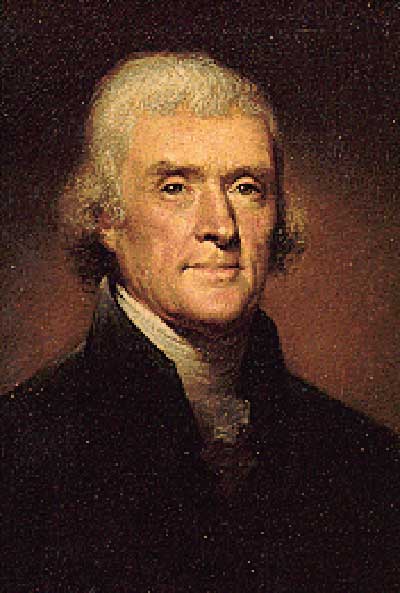 The most important document in American history is titled this way, in five lines: “In CONGRESS, July 4, 1776./ A DECLARATION / By the REPRESENTATIVES of the
/ UNITED STATES OF AMERICA, / In GENERAL CONGRESS assembled.” This “Declaration of Independence” begins with one of the best preambles ever: “WHEN in the course of human Events, it becomes necessary for one People to dissolve the Political Bands which have connected them with another, and to assume among the Powers of the Earth, the separate and equal Station to which the Laws of Nature and of Nature’s God entitle them, a decent Respect to the Opinions of Mankind requires that they should declare the causes which impel them to the Separation.”
The most important document in American history is titled this way, in five lines: “In CONGRESS, July 4, 1776./ A DECLARATION / By the REPRESENTATIVES of the
/ UNITED STATES OF AMERICA, / In GENERAL CONGRESS assembled.” This “Declaration of Independence” begins with one of the best preambles ever: “WHEN in the course of human Events, it becomes necessary for one People to dissolve the Political Bands which have connected them with another, and to assume among the Powers of the Earth, the separate and equal Station to which the Laws of Nature and of Nature’s God entitle them, a decent Respect to the Opinions of Mankind requires that they should declare the causes which impel them to the Separation.”
And it then goes on to assert a vital philosophical position: “We hold these Truths to be self-evident, that all Men are created equal, that they are endowed by their Creator with certain unalienable Rights, that among these are Life, Liberty, and the pursuit of Happiness — -That to secure these Rights, Governments are instituted among Men, deriving their just Powers from the Consent of the Governed, that whenever any Form of Government becomes destructive of these Ends, it is the Right of the People to alter or abolish it, and to institute a new Government, laying its Foundation on such Principles, and organizing its Powers in such Form, as to them shall seem most likely to effect their Safety and Happiness.”
It was a document that changed American history — and the world’s. But it wasn’t the only one to do so: The United States’ Constitution followed in 1787. But some documents can’t be fit onto a broadside. In a Saturday Review article published on July 4, 1953, historian Eric F. Goldman identified 13 “Books That Changed America.” These books were Thomas Paine’s Common Sense, The Federalist Papers, Harriet Beecher Stowe’s Uncle Tom’s Cabin, Herbert Spencer’s The Study of Sociology, Henry George’s Progress and Poverty, Charles Sheldon’s In His Steps, Sigmund Freud’s The Interpretation of Dreams, Charles Beard’s An Economic Interpretation of the Constitution, John Maynard Keynes’s The Economic Consequences of the Peace, John Dewey’s Human Nature and Conduct, Sinclair Lewis’s Babbitt, Lincoln Steffens’s Autobiography, and Wendell L. Willkie’s One World.